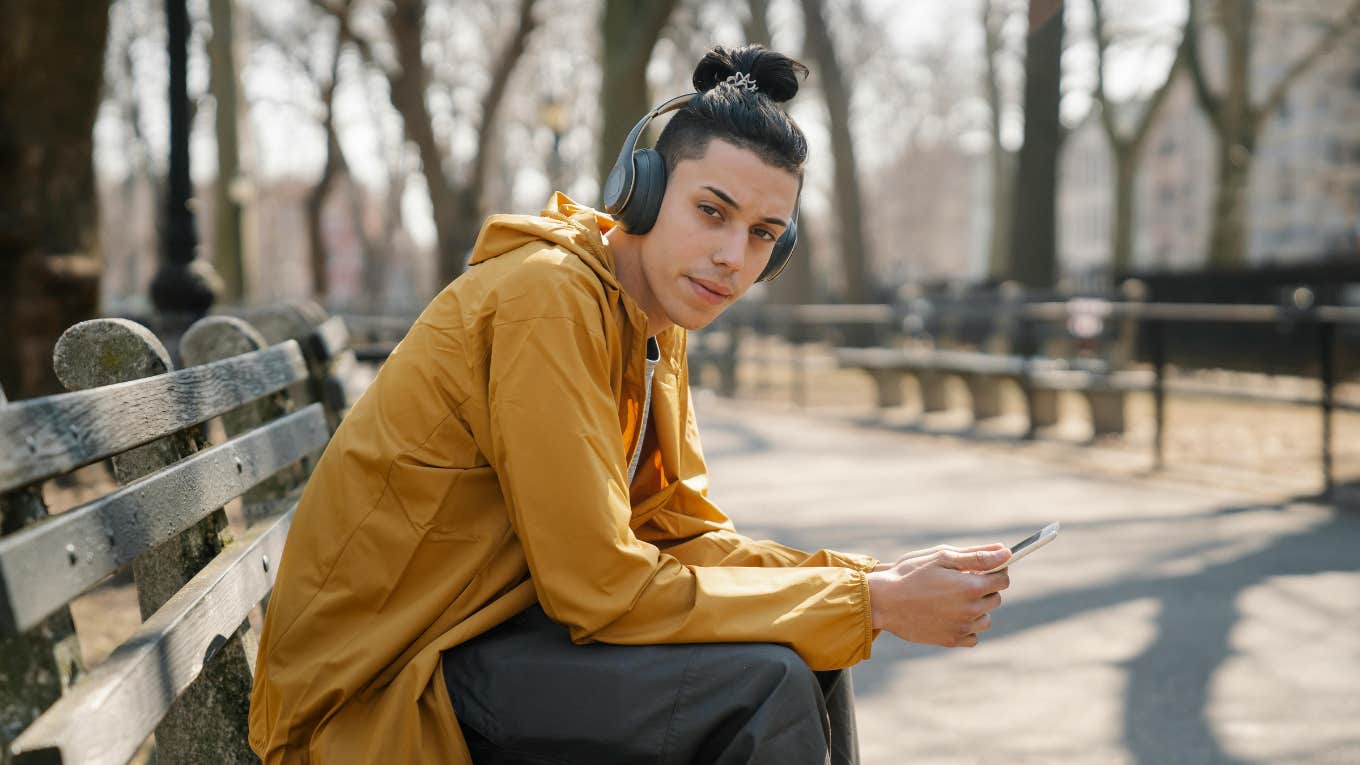3 Significant Ways Social Media Affects Teens With Mental Health Conditions Differently, According To New Study
Teens spend an inordinate amount of time on social media, and it's truly affecting their well-being.
 Eren Li | Pexels
Eren Li | Pexels U.S. teens spend an average of 4.8 hours every day on various social media platforms. That amount of screen time has been linked to a variety of issues, including increased levels of anxiety and depression. For teens who already have diagnosed mental health conditions, however, the impact of all that scrolling is much more extreme.
A 2025 study out of the University of Cambridge found that adolescents with "internalizing" conditions such as anxiety and depression are impacted differently by social media compared to their peers. Researchers were able to pinpoint specific ways the impacts were different and sadly more severe, proving that there is very little benefit to teens spending the bulk of their time scrolling through these apps.
Here are 3 significant ways social media affects teens with mental health conditions differently:
1. Comparing themselves to others
 César O'neill | Pexels
César O'neill | Pexels
Social media is simply a breeding ground for comparison culture, even for adults. It's hard to scroll on Instagram or TikTok and not feel self-conscious when you see people, especially those around your age, living what seems like perfect lives. It can feel isolating, and you can't help but wonder why you may not be at the same stage of life. A 2022 study found that an estimated 90% of women and 60% of men engage in comparison culture on social media.
If adults are doing it, imagine how much more impactful the comparison is for teens who struggle to differentiate the validity of what they're seeing. Researchers explained that for teenagers with underlying mental health conditions, "social comparison" was measured twice as high as their peers. Luisa Fassi, lead author of the study, noted, “Some of the differences in how young people with anxiety and depression use social media reflect what we already know about their offline experiences. Social comparison is a well-documented part of everyday life for these young people, and our study shows that this pattern extends to their online world as well.”
She went on to say, “Friendships are crucial during adolescence as they shape identity development. Social media platforms assign a concrete number to friendships, making social comparisons more conspicuous. For young people struggling with mental health conditions, this may increase existing feelings of rejection or inadequacy.”
2. Lack of self-control over time spent on social media
Researchers at Cambridge found that adolescents with mental health conditions report spending more time on social media than those without, amounting to an average of roughly 50 minutes extra on a typical day. That might not seem like a lot more, but it would put their usage at nearly 6 hours a day. That's almost a full school day to put it into perspective.
Social media is downright addictive. There are so many times when individuals might be scrolling on Instagram, put their phone down for a minute, only to pick it right back up and open the Instagram app again. Nancy DeAngelis, CRNP, Director of Behavioral Health, Jefferson Health - Abington, explained, "Social media platforms drive surges of dopamine to the brain to keep consumers coming back over and over again. The shares, likes, and comments on these platforms trigger the brain’s reward center, resulting in a high similar to the one people feel when gambling or using drugs."
A 2019 study found that teens who use social media for more than three hours a day — which is significantly less than the average of 4.8 hours — are at a heightened risk for developing mental health disorders. In conjunction with this new study, it's like a which came first, the chicken or the egg scenario. Essentially, if you use social media too much, it has a detrimental impact on mental health, regardless of your age or pre-existing mental conditions.
The difference is that parents can set limits for teens and hopefully curb the habit before it becomes a problem. Modeling healthy phone use, prioritizing other activities that encourage in-person communication, and talking through issues like social comparison and how to distinguish what's real and what's questionable when it comes to all internet content are vital steps parents should take to encourage healthy habits.
3. Changes in mood due to likes and comments received
 jeremyiswild | Canva Pro
jeremyiswild | Canva Pro
One of the most addictive parts of social media is posting something and watching the likes and comments. Not getting whatever arbitrary number of likes proves you're popular or receiving hurtful comments on a post can really mess with a person's self-esteem and confidence, especially young people and teens. Many teens may start internalizing this and put all of their self-worth into likes.
Sadly, the study found that teens with depression and anxiety are 28% more likely to be impacted negatively by their social media feedback compared to their peers. This ties in with social comparison as the two are inseparable in terms of impacting self-esteem.
It's easy to simply say that social media doesn't truly reflect real life. Sure, as adults we know it, although in many cases we're just as susceptible to its trappings. To truly help kids, their confidence and a foundation of self-worth need to be ingrained outside of screens. As DeAngelis noted, “The overuse of social media can actually rewire a young child or teen’s brain to constantly seek out immediate gratification, leading to obsessive, compulsive and addictive behaviors." That's why, she stressed, “It’s extremely important that parents and guardians of young children and teens pay attention to the symptoms of these mental health disorders and take note if their child is spending too much time on their screen or begins to lie about their internet use.”
Nia Tipton is a staff writer with a bachelor's degree in creative writing and journalism who covers news and lifestyle topics that focus on psychology, relationships, and the human experience.

